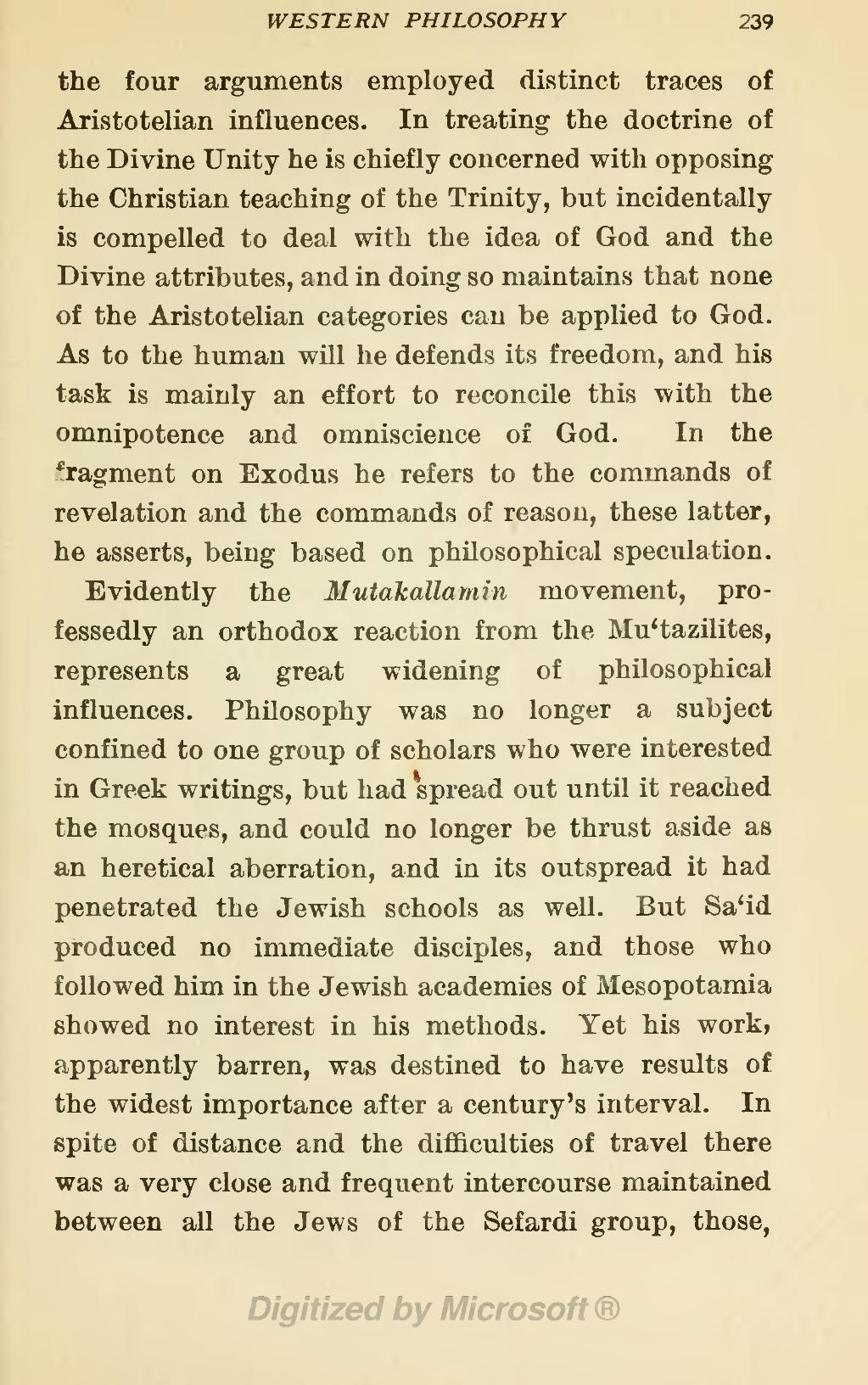the four arguments employed distinct traces of Aristotelian influences. In treating the doctrine of the Divine Unity he is chiefly concerned with opposing the Christian teaching of the Trinity, but incidentally is compelled to deal with the idea of God and the Divine attributes, and in doing so maintains that none of the Aristotelian categories can be applied to God. As to the human will he defends its freedom, and his task is mainly an effort to reconcile this with the omnipotence and omniscience of God. In the fragment on Exodus he refers to the commands of revelation and the commands of reason, these latter, he asserts, being based on philosophical speculation.
Evidently the Mutakallamin movement, professedly an orthodox reaction from the Mu'tazilites, represents a great widening of philosophical influences. Philosophy was no longer a subject confined to one group of scholars who were interested in Greek writings, but had spread out until it reached the mosques, and could no longer be thrust aside as an heretical aberration, and in its outspread it had penetrated the Jewish schools as well. But Sa'id produced no immediate disciples, and those who followed him in the Jewish academies of Mesopotamia showed no interest in his methods. Yet his work, apparently barren, was destined to have results of the widest importance after a century's interval. In spite of distance and the difficulties of travel there was a very close and frequent intercourse maintained between all the Jews of the Sefardi group, those,
